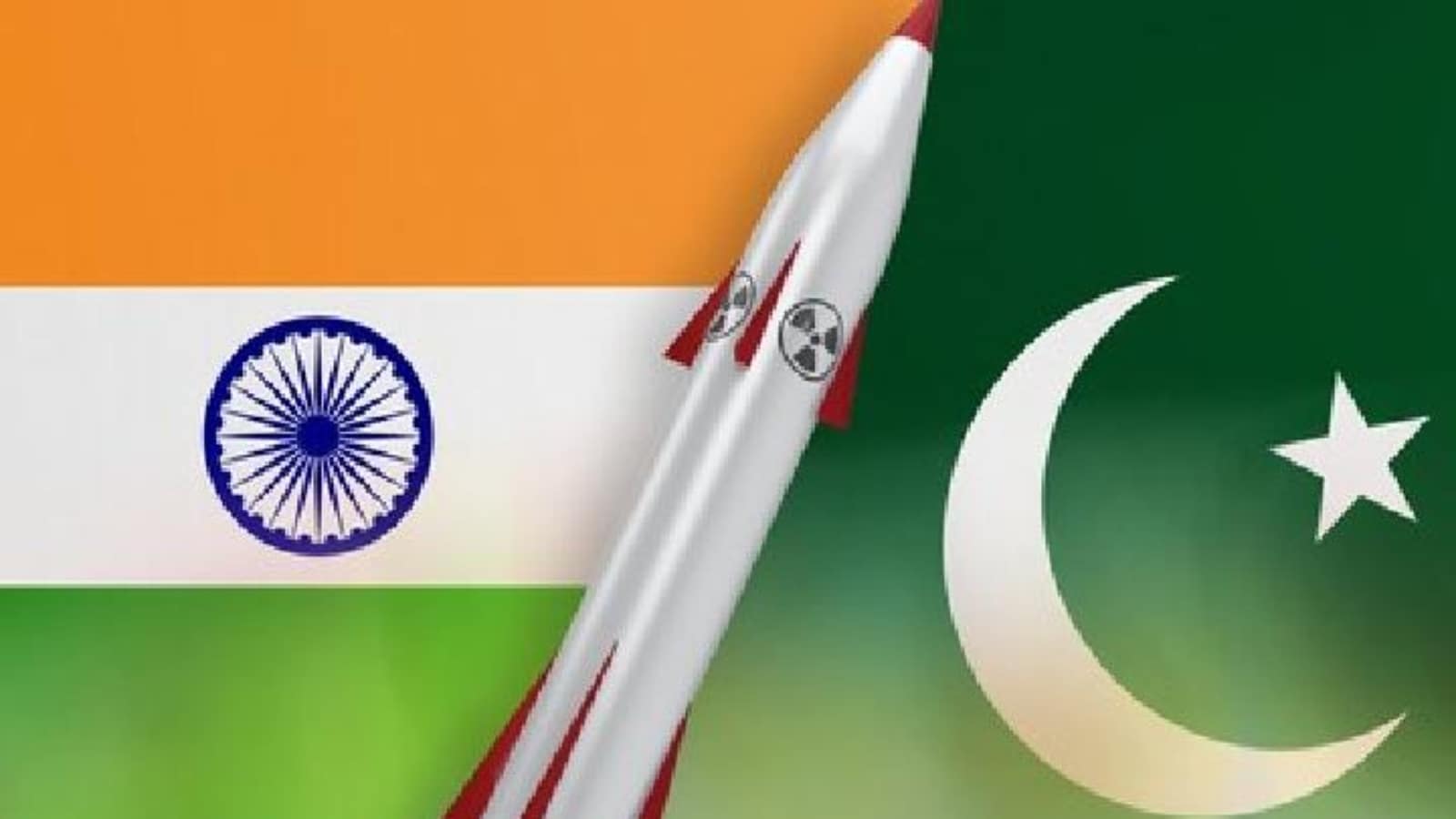 |
|
The Stockholm International Peace Research Institute's (SIPRI) Yearbook 2025 presents a sobering assessment of the global nuclear landscape, highlighting the intensifying arms race and the shifting balance of power among nuclear-capable nations. The report underscores India's growing lead over Pakistan in both nuclear warhead numbers and missile technology, while simultaneously documenting the alarming expansion and modernization efforts of major nuclear powers such as Russia, the United States, and China. This escalating competition, coupled with regional conflicts and the erosion of arms control agreements, paints a concerning picture of heightened nuclear risk and instability in the coming years. The report emphasizes the urgent need for renewed diplomatic efforts and arms control initiatives to prevent a catastrophic miscalculation or escalation. SIPRI's analysis paints a complex picture of a world where the pursuit of nuclear deterrence is simultaneously driving technological innovation and increasing the likelihood of nuclear conflict. The findings suggest that the traditional assumptions about nuclear stability are being challenged by emerging technologies, geopolitical tensions, and a lack of trust among major powers. It is therefore crucial to consider the implications of these trends for international security and to explore alternative approaches to managing the risks of nuclear proliferation and use. The report's findings are based on extensive research and analysis of open-source information, government documents, and expert opinions. SIPRI's credibility as an independent and impartial research institute lends significant weight to its conclusions, making the Yearbook 2025 an essential resource for policymakers, academics, and anyone concerned about the future of nuclear security.
Russia remains the world's largest nuclear power, possessing an estimated 5,880 warheads. While continuing to modernize its arsenal, it has experienced setbacks in key development programs. The expected buildup of non-strategic nuclear weapons has not materialized, although caution is advised due to Russia's high level of secrecy. With the New START treaty set to expire in 2026, Russia is expected to increase its deployed warheads, potentially marking a more unpredictable nuclear posture. The United States, possessing an estimated 5,244 warheads, is also undergoing a comprehensive modernization program. Delays and increased costs have plagued this program, while the addition of new tactical nuclear weapons is seen as potentially destabilizing. The report highlights internal pressure to rearm deactivated launchers due to China's expanding arsenal, potentially accelerating the global arms race. China's nuclear arsenal is growing rapidly, estimated at over 600 warheads, making it the fastest-growing nuclear power. Construction of over 350 new ICBM silos indicates a dramatic increase in second-strike capabilities. China may also be keeping warheads mounted on missiles during peacetime, departing from its earlier policy. By 2035, China could possess 1,500 warheads, rivaling the US and Russia in strategic reach. France, holding around 290 warheads, is actively investing in next-generation systems. President Macron has suggested France's nuclear weapons could play a broader role in defending Europe, potentially reshaping NATO's dynamics. The United Kingdom, with an estimated 225 warheads, is expected to increase this number. The newly elected Labour government reaffirmed its commitment to building new nuclear-powered ballistic missile submarines. Operational and financial constraints, however, affect the program's progress. The 2023 Integrated Review Refresh approved raising the cap on the total number of warheads, signaling a shift away from gradual nuclear reduction.
India's nuclear arsenal is estimated at 172 warheads, with more significant developments in technological advancements and military posture. The development of canisterised missile systems and the potential deployment of MIRVs would mark a major doctrinal shift, enabling faster launch readiness and increasing strike capability. Pakistan is estimated to possess around 170 warheads and continues to develop new missile delivery systems. Its nuclear doctrine remains ambiguous and heavily focused on short-range tactical nuclear weapons, viewed as highly destabilizing. Pakistan's arsenal could grow further, but its reliance on opaque doctrine and political instability remains a significant concern. Israel's nuclear arsenal is estimated at 80 to 90 warheads, with a policy of nuclear opacity. Modernization of nuclear delivery capabilities is evident, particularly in the context of the ongoing Israel-Iran conflict. Iran, while not believed to possess nuclear weapons, has made substantial progress in uranium enrichment, giving it the technical capacity to produce a weapon. This combination creates a volatile strategic balance. North Korea is estimated to have assembled around 50 warheads and has produced enough fissile material to build up to 40 more. South Korean officials warned that North Korea is in the final stages of developing tactical nuclear weapons. Kim Jong Un has issued a directive calling for a "limitless" expansion of the country's nuclear program. The lack of diplomatic engagement and crisis communication mechanisms contributes to a dangerously high risk of escalation.
The report highlights the erosion of global norms and the absence of arms control agreements. The New START treaty between the US and Russia is nearing expiration, with no replacement in sight. China is unwilling to enter arms control negotiations. Advanced technologies are destabilizing assumptions about deterrence. The Israel-Iran war increases the risk of escalation due to the presence of a confirmed nuclear-armed state and a potentially nuclear-capable state, coupled with a lack of regional arms control and rising disinformation. The report concludes that nuclear weapons do not guarantee security and carry immense risks of escalation and miscalculation, particularly when disinformation is prevalent. The SIPRI report paints a concerning picture of the future of nuclear security, highlighting the escalating arms race, the erosion of arms control agreements, and the increasing risk of miscalculation and escalation. The report underscores the urgent need for renewed diplomatic efforts and a comprehensive approach to managing the risks of nuclear proliferation and use. It serves as a stark reminder of the catastrophic consequences of nuclear war and the importance of preventing such a disaster.
Source: India Holds Nuclear Edge Over Pakistan, Leaps Ahead In Missile Tech: Global Arms Report
